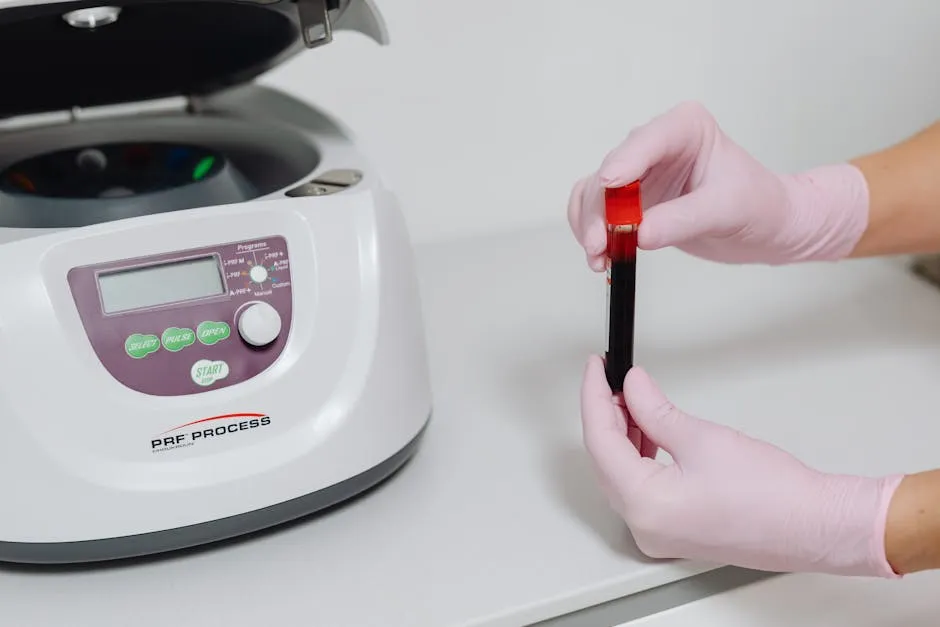
Why Is My Poop Black? Understanding the Causes and When to Be Concerned
Introduction
In the world of bodily functions, poop color might not seem like a riveting topic, but when you notice your stool has turned black, it can feel like the plot twist in a horror story. Is it a sign of a secret diet of black licorice, or is your digestive system throwing up a red flag (or rather, a black one)? Fear not! This article will explore the various reasons behind black stools, helping you decode what your body is trying to communicate.
Black poop can be the result of many factors. A diet full of dark foods, like black licorice or blueberries, might be the culprit. Certain medications can also temporarily change your stool color. But sometimes, black stools can signal something more serious, like gastrointestinal bleeding. This condition, known as melena, occurs when blood from the upper GI tract mixes with your stool.
Prepare for a journey through the digestive system, where we’ll unravel the mysteries of melena and equip you with the knowledge to understand when to seek medical advice. Remember, knowledge is power—especially when it comes to your health!
Summary of Key Points
Black poop can be alarming, but understanding its causes can help alleviate your fears. This article breaks down:
- Common Dietary Causes: Foods like black licorice, blueberries, and iron supplements can darken your stool. If your diet has changed recently, this may be the culprit.
- Medicinal Effects: Many over-the-counter medications, particularly those containing bismuth (like Pepto-Bismol), can lead to temporary black stools.
- Medical Conditions: More serious issues such as gastrointestinal bleeding (melena) can cause black, tarry stools. Possible conditions include peptic ulcers, esophageal varices, and cancers of the gastrointestinal tract.
- When to Seek Help: Recognizing accompanying symptoms—like abdominal pain, dizziness, or vomiting blood—can guide you on when it’s essential to consult a healthcare professional.
By the end of this article, you’ll gain insight into the complex world of stool color, distinguishing between benign and serious causes of black poop, and learn when to take action. Your health is paramount, and understanding your body is the first step in taking charge of it.

Understanding Stool Color
The Normal Palette of Poop
Stool color can reveal a lot about your health. Typically, poop ranges from shades of brown to green. A healthy stool should be medium to dark brown. This color comes from bile, a digestive fluid produced by the liver. Bile starts off as a yellow-green liquid. As it travels through the intestines, it mixes with food waste, changing its hue to a classic brown.
Various factors can alter this color. For instance, certain foods or medications can lead to temporary changes. Eating beets, for example, might give your stool a reddish tint—don’t worry! It’s just a harmless color show. Meanwhile, dark greens from leafy veggies are also common.
Benign variations in stool color are generally nothing to fret about. Just keep an eye on your diet and any new medications. If your stool changes color significantly and persistently, it might be time to investigate further.
What Is Black Stool?
When we refer to black stool, we’re often talking about a condition called melena. Melena describes stool that appears black and tarry, typically indicating bleeding in the upper gastrointestinal (GI) tract. The blood becomes dark as it travels through the digestive system, mixing with stool. It’s important to note that not all black stools are melena.
Sometimes, black stool may simply result from dietary choices or medications. It’s crucial to distinguish melena from other types of gastrointestinal bleeding. For example, bleeding from the lower GI tract usually results in bright red stools. If you see black, tarry stools, it’s essential to investigate the cause, as it can signify a serious health issue.
Common Causes of Black Stool
Dietary Causes
Foods that Can Turn Stool Black
Certain foods can transform your stool color dramatically. Black licorice tops the list—its intense color can easily lead to darkened stools. Other culprits include blueberries, blood sausage, and dark chocolate. Even foods dyed with black or dark colors can have a similar effect.
This color change is usually temporary. Once you stop consuming these foods, your stool should return to its regular hue. So, if you’ve recently binged on berries or a black dessert, relax! Your digestive tract is just having a colorful moment.

Medications
Medicinal Causes of Black Stool
Several medications can also turn your stool black. One of the most common offenders is iron supplements. These are often prescribed for anemia and can lead to dark stools as a side effect. In addition to black poop, you might experience stomachache or constipation.
Another common medication that can cause dark stools is bismuth subsalicylate, found in products like Pepto-Bismol. It can also stain your tongue a bit—talk about an unexpected makeover! The good news? These changes are usually harmless and resolve once you stop the medication. However, if you’re concerned, it’s a good idea to chat with your healthcare provider about your options.
In summary, while black stool can be alarming, dietary choices and medications are often the reason. If you suspect something more serious, particularly if the color persists, don’t hesitate to seek medical advice.

Medical Conditions
Gastrointestinal Bleeding
Black stool can be a sign of trouble in your gut. When there’s bleeding in the upper gastrointestinal (GI) tract, it may lead to a condition called melena. This occurs when blood mixes with digestive juices and stool, turning it a dark, tarry color. The deeper the bleed, the darker the stool becomes. If you see black poop, your body might be waving a red flag (or rather, a black one). It’s essential to pay attention!

Specific Conditions
Peptic Ulcers
Peptic ulcers are painful sores in the stomach or duodenum. They can cause bleeding, leading to black stools. Symptoms include burning stomach pain, bloating, and nausea. Treatment options typically involve proton pump inhibitors to reduce stomach acid and antibiotics if H. pylori bacteria are involved. If left untreated, these ulcers can worsen, turning your life into a real-life horror story.
Mallory-Weiss Syndrome
This condition occurs when intense vomiting or coughing leads to tears in the esophageal lining. Symptoms include vomit that resembles coffee grounds and black stool. While most tears heal on their own, severe cases might need medical intervention. If you notice dark vomit or stool after a bout of extreme vomiting, it’s time to call for help!
Esophageal Varices
Swollen veins in the esophagus can rupture and cause significant bleeding, resulting in black, tarry stools. This condition often relates to liver disease. Symptoms may include jaundice, dizziness, and abdominal swelling. Immediate medical attention is crucial, as bleeding varices can be life-threatening.
Cancers
Certain cancers of the upper GI tract, including those affecting the stomach and esophagus, can lead to melena. These cancers often cause internal bleeding, which presents as black stool. Symptoms might include unexplained weight loss, difficulty swallowing, or persistent abdominal pain. Early detection is vital, so don’t ignore those signs!

Diagnosis and Testing
When to See a Doctor
Not all black stools are created equal. If you experience a sudden change in stool color, especially if it’s persistent, it’s a good idea to consult a doctor. If black stool comes with symptoms like abdominal pain, dizziness, or vomiting blood, don’t wait! These could be signs of a medical emergency.
Accompanying symptoms play a crucial role in determining severity. For instance, if you feel faint or have severe stomach pain, seek immediate medical attention. Keep in mind, while dietary choices or medications often cause temporary changes, black stools can signify something more serious. Your health is worth the call!

Diagnostic Tests
Your doctor may recommend several tests to identify the cause of black stool. These can include fecal occult blood tests to detect hidden blood, blood tests to assess overall health, and imaging studies to locate bleeding sources. An upper endoscopy may be performed to visually examine the upper GI tract—this helps diagnose conditions and sometimes allows for treatment on the spot.
Understanding why your poop is black is the first step toward reclaiming your health. Don’t shy away from getting the help you need!

Treatment Options
Dietary Adjustments
If you suspect your black stool is due to dietary choices, making some changes might help. Start by cutting back on foods known to darken your stool, like black licorice, blueberries, and dark chocolate. These tasty treats can lead to temporary color changes, so don’t fret if you’ve indulged recently. Also, keep an eye on iron-rich foods and supplements. While they are great for boosting your hemoglobin, they can also turn your poop a shade of midnight. Moderation is key!
Remember, it’s not just about what you eat but also how much. A food journal can be your best friend here. Track what you munch on and see if there’s a pattern. If your stool returns to its normal hue after these adjustments, then your diet was likely the culprit. If not, it’s time to consult a healthcare professional.

Medical Treatments
When it comes to underlying causes of black stool, treatment options vary widely. If you have a peptic ulcer, for example, your doctor might prescribe proton pump inhibitors. These medications reduce stomach acid, allowing the ulcer to heal. If an H. pylori infection is involved, antibiotics may be in the mix.
For those with esophageal varices, medications to lower blood pressure in the affected veins can be helpful. In severe cases, surgical interventions might be required. It’s crucial to treat the root cause, which could range from managing gastritis to addressing cancers in the upper GI tract. Your doctor will guide you through the best course of action based on your specific diagnosis.

Home Remedies
While medical treatment is essential for serious conditions, some home remedies can support your digestive health. For instance, increasing your fluid intake can help keep your stool soft. Consider adding high-fiber foods like fruits, vegetables, and whole grains to your diet. Fiber not only promotes regularity but can also prevent constipation, which may exacerbate any stool discoloration.
Herbal remedies might offer some relief too. Ginger and peppermint are known for their digestive benefits. Turmeric can reduce inflammation in the gut. However, always consult with your healthcare provider before trying new remedies, especially if you’re already on medication or have underlying health issues. Your health is paramount, and a little lifestyle tweaking can go a long way!

FAQs
Is black poop an emergency?
Black stool can be serious, depending on the context. If you notice black, tarry stools accompanied by symptoms like dizziness, abdominal pain, or vomiting blood, it’s essential to seek emergency medical care. These signs often indicate bleeding in the upper gastrointestinal tract, which requires immediate attention.
Can black poop be temporary?
Absolutely! Black stool can be temporary, especially if related to dietary choices or medications. Consuming dark-colored foods—such as black licorice or blueberries—can lead to a short-lived color change. If you notice black stool after consuming such foods, it’s likely nothing to worry about. Just monitor your diet, and the color should return to normal shortly.
How do you fix black poop?
Fixing black poop depends on its cause. If it’s due to dietary choices, consider reducing or eliminating foods that darken stool. For medication-related discoloration, consult your doctor about possible alternatives. If you suspect a medical issue, it’s vital to seek professional advice to address any underlying health concerns.
Can dehydration cause black stool?
Dehydration can sometimes make stool appear darker, potentially resembling black. When the body lacks water, the stool can become hard and concentrated. While dehydration alone may not cause true black stool, staying hydrated is crucial for healthy bowel movements. Ensure you drink plenty of fluids to keep things moving smoothly.
What does stress poop look like?
Stress can impact bowel movements, leading to various changes. While stress typically doesn’t alter stool color, it can cause functional changes like diarrhea or constipation. If you find yourself rushing to the bathroom more often or experiencing irregular bowel habits due to stress, consider incorporating relaxation techniques to help manage your stress levels.
Please let us know what you think about our content by leaving a comment down below!
Thank you for reading till here 🙂
All images from Pexels




